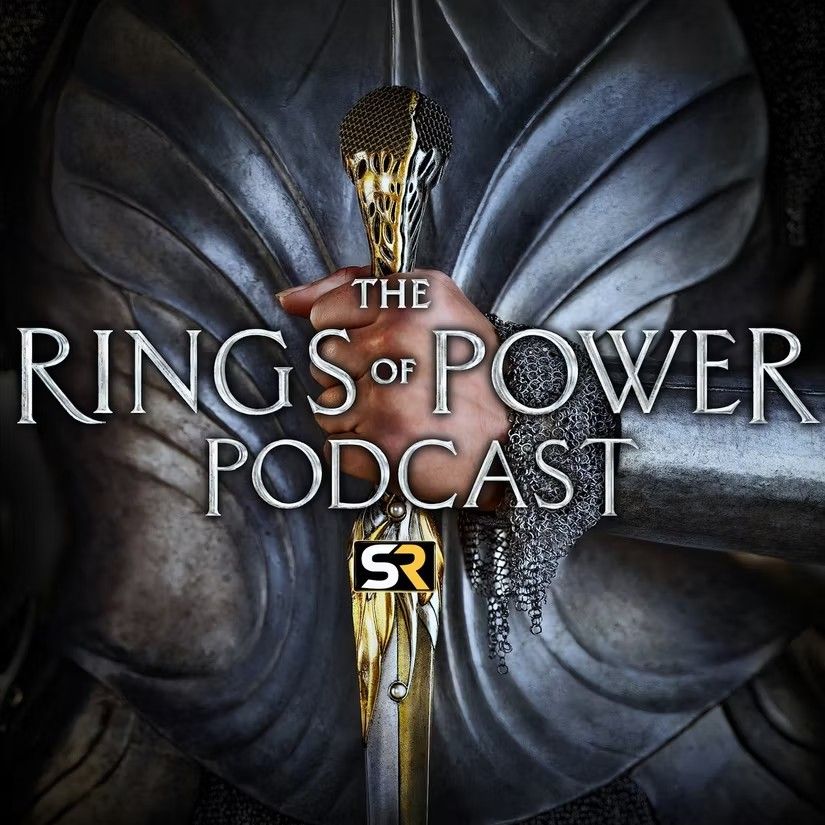Summary
- The Rings of Power season 1 finale confirmed the show’s mysterious Stranger is a wizard, but his identity is still not confirmed.
- The trailer for Rings of Power season 2 suggests that the Stranger may be young Gandalf, breaking canon but still fitting within Tolkien’s lore.
- The Blue Wizards, Alatar and Pallando, are a potential identity for the mysterious figure in Rings of Power, offering a new twist.
The first season of The Lord of the Rings: The Rings of Power gave fans several major questions to answer, but the true identity of its wizard-like Stranger (Daniel Weyman) remains one of its biggest unsolved mysteries. Audiences now know that this character is a wizard, appearing in a new, unwritten story within J.R.R. Tolkien’s lore. But which wizard—Gandalf, Saruman, Radagast—is now the riddle, and it’s one that ScreenRant’s The Rings of Power Podcast is trying to answer.
The closing moments of Rings of Power‘s first season finale may have teased fans too much, causing many to take the insertion of Gandalf dialogue as an explicit confirmation: this is young Gandalf, appearing centuries before he should (on his Third Age mission). That is not yet confirmed to be the case, but surprisingly, it wouldn’t ‘break the timeline’ the way some enthusiasts assume, either. All of which is discussed at length in the latest episode of The Rings of Power Podcast: “Is The Stranger Young Gandalf, a Blue Wizard, or Neither?” embedded below:
Hosts Andrew Dyce and Stephen Colbert dive deep into the existing lore, ideas and potential stories scribbled or discussed by Tolkien across his life, and where the Rings of Power writers have room to fill in their own fiction. But when weighing the evidence surrounding the show’s Stranger, two major theories seem the most likely to prove true.
Related
The Rings Of Power Drops Another Big Gandalf Clue In Season 2’s Trailer
The trailer for Rings of Power season 2 continues to hint that The Stranger is Gandalf, which is bad news for enthusiasts of JRR Tolkien’s canon tale.
Yes, Rings of Power’s New Wizard Can Be Young Gandalf
The new ‘origin story’ for Gandalf could fit existing lore, but is still just one theory
By necessity, any uncorrupted wizard will be ‘acting like Gandalf,’ even if they merely exhibit the same qualities, knowledge, or insights intended for all five Istari.
To set our sights directly on the big problem with this theory, it’s true that Gandalf first appears in Middle-earth at the beginning of the Third Age. With The Rings of Power set in the Second Age, an arrival by Gandalf would seemingly break canon. Of course, ‘canon’ doesn’t really apply to Tolkien’s writing in general, or his writing on the wizards specifically, since multiple ideas were floated, considered, expanded upon, and abandoned by the author.
For those who would argue an explicit “breaking of canon” were the Stranger revealed to be Gandalf, Tolkien made sure to tease that “Olórin” (as he was known in his pre-Istari form) was potentially chosen for the role thanks to his affection for Men and Elves, from prior experiences in Middle-earth:
“That
Olórin, as was possible for one of the Maiar, had already visited Middle-earth,
and had become acquainted not only with the Sindarin Elves and others deeper in Middle-earth, but also with Men, is likely, but nothing is [> has yet been] said of this.” – Last Writings, “The Peoples of Middle-earth” (1996)
For clarification: “as was possible for the Maiar” doesn’t suggest any limitation, but acknowledges Tolkien’s prior lore that Maiar can take physical form, or walk unseen, at will. The final “nothing is/has yet been” note also suggests Tolkien may have intended to explore this missing history himself. He didn’t, but imagining Olórin taking a physical form to ‘become acquainted’ with residents of Middle-earth would hew closely to the Stranger’s narrative thus far. So not confirmed, but within Tolkien’s vision.
Considering all the Stranger’s similarities to Gandalf, the connection was easily the first for a viewer to make. But there is a major problem with this line of reasoning. Gandalf is the only wizard readers actually meet whose nature or behavior can de described as ‘wizardly.’ By necessity, then, any wizard will be ‘acting like Gandalf,’ even if they merely exhibit the same qualities, knowledge, or insights intended for all five Istari.
Tolkien’s Blue Wizard Mystery May Finally Be Solved
Has the show created an answer to Tolkien’s many versions of ‘Blue Wizards’?
The first question anyone should ask in response to The Rings of Power debuting a new wizard is, “Was there another wizard Tolkien created, that this could be?” The answer is yes, and with reports actor Ciaran Hinds will play another wizard in season two, it makes perfect sense that Tolkien actually created two:
“…[T]hey had no names save
Ithryn Luin, “the Blue Wizards”
; for they passed into the East, pursuing there the purposes for which they were sent; or perished; or… were ensnared by Sauron and became his servants… strange indeed though this may seem, the Istari, being clad in bodies of Middle-earth, might even as Men and Elves fall away from their purposes, and do evil, forgetting the good in the search for power to effect it.” – The Istari, “Unfinished Tales of Númenor and Middle-earth” (1980)
Considering Tolkien only learned there were five Istari when Saruman referenced “the five wizards,” it’s not surprising he only managed to describe three of them in the published Lord of the Rings. Gandalf, Radagast, and Saruman illustrate three different approaches to their shared mission, but the other two ‘Blue Wizards’ stand apart as a single unit (with no hints whatsoever as to what their color refers to). All we know is that they both arrived in the Second Age, went East, and either turned to evil… or secretly saved Middle-earth.
Tolkien’s unpublished ideas for the Blue Wizards would change over time, imagining a unique mission for them, a connection to Saruman, and even names (listen to the full episode of The Rings of Power Podcast for the full breakdown). As pertains to The Rings of Power, Tolkien would also muse that in going East, the Blue Wizards might stray from their mission to disrupt Sauron’s supporters, instead becoming “founders of secret cults and ‘magic’ traditions” (Letter No. 211, “The Letters of J. R. R. Tolkien”).
None of these ideas should be considered ‘canon,’ nor were they developed enough for the show to agree or disagree with them. But with one wizard now on a mission to do good in the East, and another seemingly seeking the first out using followers of a mystic cult, it appears The Rings of Power writers could be adapting not just one version Tolkien considered, but multiple. If this is the case, then audiences will get a Lord of the Rings prequel adventure its creator dream of, but sadly never wrote himself.
While never finalized or published, Tolkien named the two Blue Wizards Alatar and Pallando, and alternatively Morinehtar and Rómestámo, or “darkness-slayer” and “East-helper,” respectively.
For the full conversation and debate on this and all other topics related to the TV show, be sure to follow The Rings of Power Podcast in your favorite podcast app, and stay tuned to ScreenRant for all coverage of season two and beyond.

The Rings of Power Podcast
Tolkien enthusiasts Andrew Dyce and Stephen Colbert host this ScreenRant podcast about Prime Video’s ongoing series The Lord of the Rings: The Rings of Power. Each episode explores questions, criticism, and theories about the Middle-Earth-set show.







